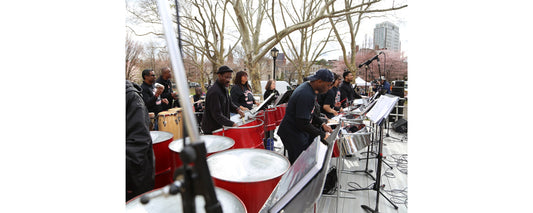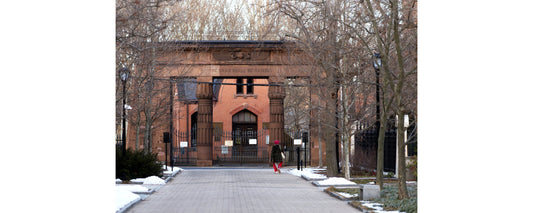Rounding a bend in the Litchfield Turnpike, it’s easy to rush past the Thomas Darling House, a homestead stood still in time, blending easily into the pastoral backdrop of West Rock Ridge. Once the site of a colonial-era farm, now the seat of the Amity-Woodbridge Historical Society, it rests along a key route into New Haven.
Darling, a Yale graduate, was more gentleman than farmer, serving in several civic capacities across the region including as a chief magistrate, a deputy to the state’s General Assembly and a judge of the county’s Probate Court. But the estate bears all the markings of a sizable family farm, including quarters for the slaves who once toiled on behalf of Darling’s large family.
Entering through a side door of the white-washed main house, the interior was dim and cool, enhanced by drawn shades and wide-plank floors. A slight smell of smoke still lingered, the remnant of a recent “pub night,” one of several open houses the historical society holds each year. A large kitchen fireplace, its iron implements still intact, is used for open-hearth cooking demonstrations.
sponsored by
Other accessible spaces—the parlor, pantry and bedrooms—contain a mixture of furnishings representing the colonial, Civil War and Victorian eras the house has survived. The signature piece is an original grandfather clock, still standing sentinel in the center hall. Manufactured in New Haven by Isaac Doolittle, the uncommonly tall clock’s finials nearly touch the house’s 9-foot-3-inch ceiling. It’s believed that the base of the piece had to be trimmed to make it fit.
The surrounding 118-acre property maintains much of its historic, agrarian feel as well. The animal barn is segmented by stalls and contains antique rakes, ploughs and scythes remarkably similar to those in use by small farms today. Other outbuildings remain in very good condition, including a five-seat outhouse and a former pig shelter that now functions as a storage shed.
A smaller outbuilding that used to sit where cars now park was rotated and connected to the main house sometime around 1850, serving as a summer kitchen. This attached building was updated as a caretaker’s cottage in the 1970s, when the property was deeded to the town by the last surviving member of the family. About a third of the property sits opposite the Litchfield Turnpike and is currently used as a campground for boy scouts. Surrounding the estate’s open fields, trails blaze through the woods, encouraging exploration of West Rock Ridge.
sponsored by
When Darling and his wife, Abigail Noyes, took up residence at the new home in 1772, Woodbridge wasn’t yet chartered, known rather as Amity Parish. According to historical records, however, the area was already well-occupied by prominent land-owning families, many whose names grace area road signs: Baldwin, Sperry, Newton, Peck. Litchfield Turnpike—then Straits Turnpike—was a toll road created by the state to encourage nearby farmers to participate in regional markets. Accessible to nearby Lake Dawson and the West River, the area sprouted several mills and neighboring businesses, which boomed during the 1800s. The growing population of New Haven relied heavily on them for wagons, hoop skirts and other goods. The location was also convenient to a town meeting house that used to exist at the intersection of Amity and Seymour Roads.
Today, volunteers of the Historical Society preserve the property by offering a curriculum on colonial living to visiting third graders, hosting open houses and overseeing the occasional acquisition, like a set of custom-made reproduction chandeliers recently installed in the home’s center hall. In addition to the society’s small farm operation, the Garden Club of Woodbridge maintains a kitchen garden just outside the back door.
The surrounding farm endeavor sprouted three years ago when then-caretakers Aaron and Caitlin Taylor approached the Historical Society about cultivating some of the open land behind the homestead. Reviving roughly three acres, the Taylors launched Darling Farm, which sold herbs, produce and chicken eggs at the Edgewood Farmer’s Market. After the Taylors moved their farming operation to a bigger property in East Haddam this past winter, the Historical Society sought new residents to carry Darling’s renewed farming legacy forward.
Conveniently, Connecticut is growing young farmers like weeds. In March, the Society engaged budding local agronomists Ethan Schneider, Ed Roden and Samantha Solum to serve as the new caretakers. Operating as Koan Farms, they expect to grow vegetables and raise chickens in the near term, and maybe even make use of that old pig shelter.
The nearby outhouse, we’re guessing, will remain a tribute exclusively to the past.
Thomas Darling House
1907 Litchfield Tpke, Woodbridge (map)
Tours by appointment, plus occasional open houses.
(203) 387-2823
www.woodbridgehistory.org/…
Written and photographed by Caty Poole.









